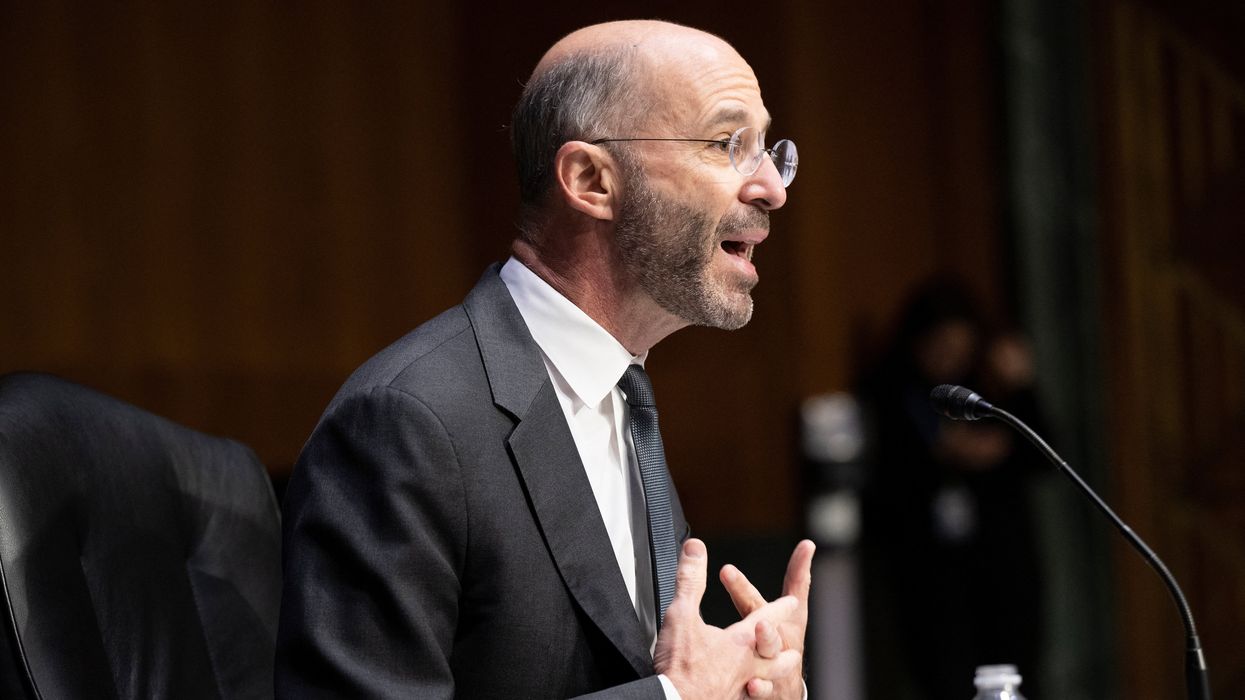GLENN: Hello, and welcome to the program. Coming up we're going to go into some of the predictions. I think today is tech predictions.
STU: Technology.
GLENN: And it's weird because a lot of these tech things are already happening. Yesterday we told you about KODAKCoin. This is the first time to be excited if you have anything to do with Kodak. It's like, they learned their lesson! You know the story about how they went out of business? How fast that happened? You don't know this? This is fascinating. So Kodak, you know, made film, obviously. They were the film dealer for everybody. They are state of the art film and film processing.
And they had a billion employees in Rochester, New York.
And they see the digital camera and they say, well, that's not going to take off. So they decided to not -- we'll let other people do the digital thing. We'll just stay in film.
One Christmas went by, and it was the first Christmas that digital cameras started to take off. They met again and they were like, no, we're a film company. Three Christmas later, they were almost out of business. It happened that fast. They went from the Titan to three years later, nothing. And they're like, maybe we should do the digital thing and it was too late. The first thing that I think Kodak has done that was smart, they just come out, announced it Monday or Tuesday, a KODAKCoin, and it's like Bitcoin. But here's -- and this is in one of my predictions, that some company is going to do this and they're going to use blockchain and Bitcoin to do it, and I said in the prediction that it would be Facebook or Apple or somebody like that.
Kodak is the one that comes out and does it. And what they've done is, you know how you have, you know, the photo thing, not Reuters, but ...
You always see. You go there for stock photos of news things. I don't know if you've ever seen it.
STU: Yeah, there's a few companies that do that.
GLENN: The big one, you sell your -- or you post your photo of, I've got the President picking his nose, and they put it on a service, and that service goes and everybody has it, and if you want to use it for television or radio or newspaper or something, you just buy it from them, and then that company pays you.
STU: Getty Images?
GLENN: That's what it is.
So Kodak has decided they're going to do it. And so what they do, in your camera, you will take pictures, and it will automatically go into blockchain and be held by you, and you can immediately post it. I mean, you take it, and it posts for sale from Kodak, and then there's no middleman. They're not negotiating anything. It's just posted. They buy it, they buy it through KODAKCoin. You get paid immediately, and it's simple, and there's no middleman. That's KODAKCoin.
STU: That's great.
GLENN: It's really brilliant.
STU: It's interesting because they have a big renaissance because they've tied themselves to this blockchain idea and that's happening to a lot of companies. A lot of them are like very strange stories, like this Chanticleer Holdings. Are you a big fan of them?
GLENN: Chanticleer? I've heard of it.
STU: They own several Hooters restaurants, nine Hooters restaurants, and they own some of the stock at Hooters of America.
GLENN: I'm trying to figure out the connection to blockchain.
STU: Right. That's where a lot of people are too. They said, a couple of weeks ago, that they would use blockchain related technology for its customer rewards program. And their stock went up 50%.
GLENN: That happened -- I saw that happen last year. There was another company that just has nothing -- they didn't know that they were putting blockchain. Nothing. They just put blockchain in their name. It was like, Glenn's Blockchain, and it went up. And the company has nothing to do with chain. They were just like, it's like money off of the blockchain.
STU: Really smart.
GLENN: That's Warren Buffett saying, don't invest if you don't know how it works. You know. Most people don't even understand what blockchain is, let alone Glenn's block change. That's somebody going, I know! Put some money in that blockchain thing!
STU: They're thinking, here's a new company, or a company that's changing its goals and they're working in blockchain. Get in now, get in early. Whoever owns that company, increases their cash by 50% or whatever it is. And then they can sell, and make a bunch of money and when it turns out they're actually do it, eventually the stock will come down but it's a good idea.
GLENN: I had a two-hour meeting with a guy from Silicon Valley who's a real mover and shaker and been instrumental in some of the new companies out now, the new tech companies and had a fascinating conversation.
Yesterday, Stu and I had a conversation with a blockchain and cryptocurrency guy.
And man, I hope he's right.
STU: Yeah, he was optimistic, I had say.
GLENN: Yeah, what was he say that he thought? Bitcoin would go up to? He said.
STU: It was 500,000?
GLENN: 500,000, I thought. And he didn't put a time period on that, did you.
STU: No, I don't think so.
GLENN: And he's been right about a lot of these things. I've sure he's been wrong, but he's been right about a lot of these things. There's a lot to learn like a theorem. He taught us about a theorem yesterday. I didn't release that was like an operating system.
STU: Yeah, it is. A lot of these secondary or even below that coins are built on. It's like, that's the operating system for these new, you know, Bitcoin types. I'm trying to explain this in a way that -- [overlapping voices] KODAKCoin is probably built on a theorem. Which is essentially the operating system for it.
GLENN: How is -- I was reading so have some stuff from Milton Friedman. We put it on a monologue on TV last night. But Milton Friedman talked about the internet and said the internet is going to be gigantic, and it will really change things. It will change government and everything else once you come up with a digital currency.
And here we are. We're at a digital currency. And you just wonder, how is -- how are the governments of the world, when push comes to shove, they're so far behind that they don't -- I remember having a conversation with somebody in Congress who sits on a committee for this kind of stuff, and I was talking to them about the technology that's coming. Me. Me. I have a rudimentary at best understanding of the stuff.
And they just kept looking at me and blinking, and they were in a room with a few people, and they were like, huh. We're going to have to look into that. Maybe we should -- we should look at, is there regulation that would -- we should be looking into? And I went, what? By the time you guys even figure this out, it's too late.
STU: Yeah.
GLENN: And they just -- they have no concept of what's coming.
STU: Yeah, people talk about this, and it's not a matter of whether cryptocurrencies fail because of the governments try to stop them. It's the idea whether governments will fail because of cryptocurrencies. So it's interesting. And I think like, these things obviously been in the news a lot. I think there's different levels of interest. Like the top tier people who are real investors and really know this stuff -- excuse me -- there's a secondary tier.
GLENN: Would you like some more NyQuil?
STU: The secondary tier of people who know a decent amount about it and invested in it. There are people who follow the news and are interested in things like a money supply that the government can't inflate. I think a lot of people in our audience are interested in that aspect of it, the idea that that thing could solve something we've been complaining about for decades, and it's not centralized through a government. I think there's a level of interest there. I think at the bottom of it is just, I like hearing stories about people getting megarich off of things. I love those stories are, like, someone invests a dollar -- we had someone who wrote in yesterday to one of our stories on Facebook and said, they got in an argument with --
GLENN: With their wife.
STU: -- in 2017 about buying 500 bitcoins.
GLENN: Oh, my gosh.
STU: Now, 2013!
GLENN: How much was that?
STU: Let me look at the Bitcoin charge here real quick.
GLENN: I didn't realize was 500 Bitcoins. Somebody in our audience, we have to talk to you. If that's you, you have to call in.
STU: Oh, my gosh.
GLENN: So how much was it?
STU: I'm looking here.
GLENN: He had an argument with his wife, and she said, we're not going to put money in Bitcoin. And he said, honey, right now it will cost us how much?
STU: I'm looking that up.
GLENN: We should invest 500 Bitcoin.
STU: Can you imagine? Can you freaking imagine.
GLENN: 2013, that had to be --
STU: 2013 we are at --
GLENN: It had to be 200?
STU: To 2013 it changed -- that was the year that it had its first -- what they were calling at the time a bubble where it peaked at a thousand dollars. Okay? But then it ran down with it was -- he said 2012 or 2013. So 2013, it was, for most of the year, about $100. At the beginning of the 2013 it was $13.
GLENN: 500.
STU: So that would have been $25,000, right? 50 times 500 is $25,000. So that's a good -- so you think, I don't know.
GLENN: Now do 500 times let's say $15,000.
STU: $15,000 will get you a return of $7.5 million.
GLENN: Are they still together? Are they still together? We have to track that listener down.
STU: Yeah, he said -- we had the argument, I lost the argument, and I'm still poor was the way he described it. $500 Bitcoins, he must have had some money. But $7.5 million is better than 8,000 in money, at least that's my impression.
GLENN: Is it? I'm not sure. That common core math?
STU: I have to show my work. But that's nothing compared to the goes who founded Ripple. Now Ripple is another cryptocurrency. You have the Bitcoin, theorem, light coin.
GLENN: Ripple seems pretty shady, only because they announced that Ripple was going to go on to coin base, and if --
STU: They didn't announce that. That is a rumor. There's no reason to believe that that's happening at this point.
GLENN: No, I know that but I thought it came from them.
STU: No, I don't think so.
GLENN: Well, somebody -- and it looks pretty -- it looked pretty solid and it went from like 1.50 to 350, 3.90, something like that.
STU: And it's in the high one dollars right now. But it was also 0.06 -- or 0. -- 0.6 cents in 2017.
0.6 cents is what it was. You could have bought these things for 0.6 cents. Now it's different from let's say Bitcoin, as I was talking about, it's not centralized. Right? And it is -- there's a limited amount of Bitcoins that will ever be created, so there's no inflationary risk here. Most of the Bitcoins, 80 some odd percent of them are already out. So there's not an inflation there.
Ripple, they created 100 billion of three things upon inception. So they created 100 billion of them, and the way they gave them away, they did giveaways, they did all sorts of things, but they've only released a third of them. So 66 billion of these Ripple coins are held by the company, which is like three guys who created them.
They're currently about $2 per coin. Okay? So that's a lot of money.
The way this breaks down, Forbes looked at it. It's actually insane. The cofounder and CEO, Chris Larson, who stepped in, he now serves at the executive chairman. He has 5.19 billion Ripple tokens.
And his personal holdings, and a 17% stake in the --
GLENN: He's not $5 --
STU: No, more than that. His net worth currently -- and this is slightly higher than it was now, but net worth personal, $37.3 billion. That would make him the 15th richest American on the 2017 Forbes 400 list.
GLENN: This stuff is going to -- this stuff is going to change the world. Think of the power shift. Here's the guy who had nothing!
And now he's got $37 billion! I mean, you know.
(Laughter.)
In the wrong hands, we -- Hooters is going to be where Congress meets!
(Music).
STU: I got news for you. They're already meeting there.
GLENN: It is a Hooters. Without the wings.










